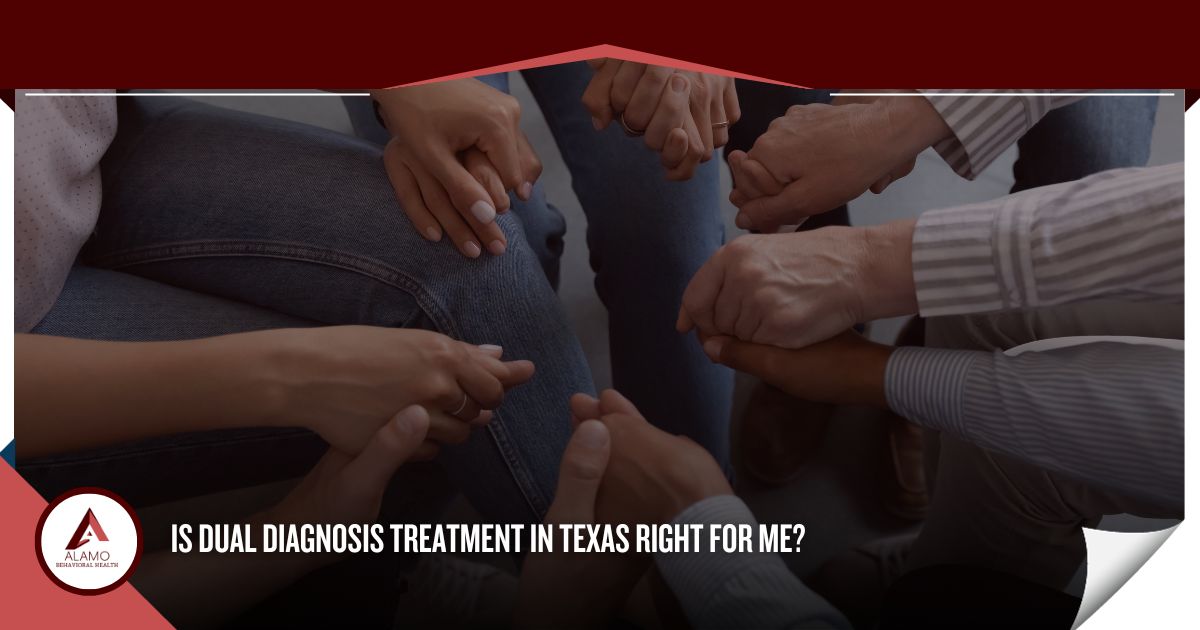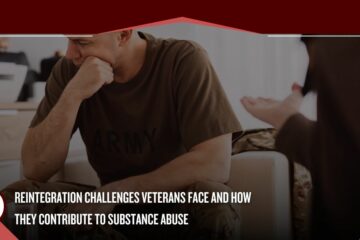
Dual diagnosis treatment provides integrated care for both addiction and mental health by giving clients an accurate diagnosis and treating both conditions at the same time. Alamo Behavioral Health offers an intimate, private treatment setting that allows clients to feel safe and cared for. This type of environment also encourages clients to open up about their feelings and experiences so they can truly heal.
If you or a loved one struggles with co-occurring disorders, our dual diagnosis treatment program in San Antonio, Texas may be right for you.
Understanding Co-Occurring Disorders
The National Institute on Drug Abuse (NIDA) estimates that 7.7 million adults have co-occurring mental and substance use disorders. Research has shown that up to 50% of adults and 60% of adolescents admitted to substance abuse treatment programs also have a mental health condition.
In many cases, addiction develops as a result of an attempt to self-medicate symptoms of mental illness. For example, people who struggle with depression may abuse alcohol or drugs to experience symptom relief. Someone who struggles with anxiety may abuse substances to feel confident in social situations.
However, addiction can come first, too. Prolonged drug and alcohol abuse changes the way you think, feel, and behave, and it can certainly lead to the development of a mental health condition.
Regardless of which came first, individuals are always encouraged to seek dual diagnosis treatment where they can work on addressing both conditions simultaneously.
Some of the most common mental health issues associated with substance abuse and addiction include:
- Anxiety disorders – Generalized Anxiety Disorder (GAD), Social Anxiety Disorder (SAD), Obsessive-Compulsive Disorder (OCD), and Post-Traumatic Stress Disorder (PTSD)
- Depressive disorders – Major Depression, Seasonal Depression, and Bipolar Disorder
- Personality disorders – Borderline Personality Disorder (BPD), Antisocial Personality Disorder (ASPD), and Avoidant Personality Disorder (AVPD)
- Eating disorders – Binge Eating Disorder, Bulimia, and Anorexia Nervosa
Other mental health conditions, such as schizophrenia and attention-deficit-hyperactivity-disorder (ADHD), can also increase the risk of substance abuse and addiction.
Signs Dual Diagnosis Treatment is Right for You
You may benefit from dual diagnosis treatment if you:
- Abuse drugs and alcohol to cope with feelings of anxiety or sadness
- Have been diagnosed with a mental health condition in the past
- Often experience stress, anxiety, depression, or feelings of hopelessness
- Have found yourself isolating from friends and family
- Continue using drugs or alcohol despite the effects they are having on your mental health
- Feel as though you cannot function or get through the day without drugs or alcohol
Leaving your mental health untreated while trying to overcome your addiction may prove to be impossible, especially if your mental health is the driving force behind your substance abuse. Even if you manage to get sober, failing to treat your mental health can result in relapse.
At Alamo Behavioral Health, we understand the complex relationship between addiction and mental health, which is why mental health is a primary focus of our recovery program. Our dual diagnosis treatment program offers comprehensive treatment that helps you get to the root cause of your substance abuse so you can recover.
What to Expect at a San Antonio Dual Diagnosis Treatment Center
First, our clinical team will take you through a complete physical and psychiatric assessment so we can make an accurate diagnosis and formulate a treatment plan based on your needs. We will take the time to learn about your substance abuse patterns, medical history, and mental health so we can provide the highest quality care.
Most of your time in treatment will be spent in group and individual therapy sessions. There are several different types of therapies used to treat co-occurring disorders, including:
- Cognitive Behavioral Therapy (CBT)
- Dialectical Behavior Therapy (DBT)
- Mindfulness-Based Relapse Prevention Therapy
- Experiential therapies
- Holistic therapies
The goal of these therapies is to fully address the underlying causes of your substance abuse. You will start to understand why you abuse substances in the first place and what you can do to stay sober in the future. Dual diagnosis therapy will also introduce you to healthy coping skills that can alleviate mental health symptoms.
Many clients at a Texas dual diagnosis rehab center can also benefit from medication. For example, antidepressants may be prescribed to treat depression symptoms or non-addictive anxiety medications may be given for anxiety disorders. When combined with therapy, medication can lead to an overall reduction in mental health symptoms.
Before you complete treatment, your counselor will work with you to develop a detailed discharge plan. Your discharge plan will outline how you can stay sober while transitioning out of rehab. This may include continued counseling, medication management, support groups, and more.
Start Your Recovery at a Dual Diagnosis Rehab Center in Texas
At Alamo Behavioral Health, we offer dual diagnosis treatment in a private, intimate setting while supporting your physical, emotional, and spiritual needs. We strive to treat each client with dignity and understanding as we work to reinstall meaningful, healthy lives in people struggling with addiction.
The first step towards a sober, healthier life is asking for help. Our compassionate admissions counselors are available 24 hours a day to assist you in starting your journey. To learn more about our dual diagnosis program or to find treatment for co-occurring disorders in the San Antonio area, please contact us today.



